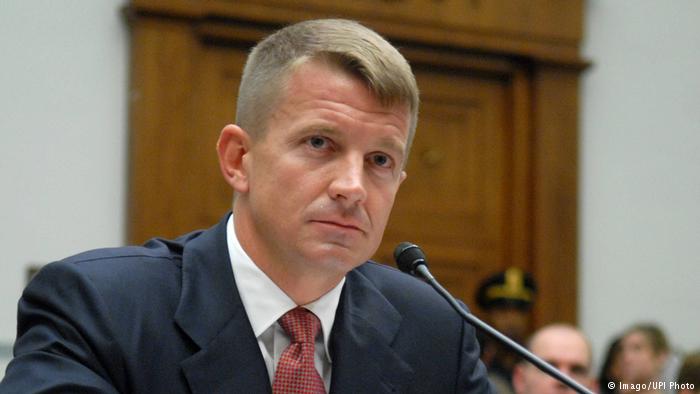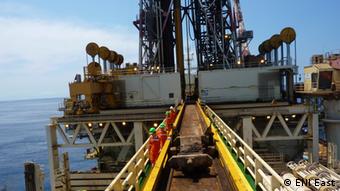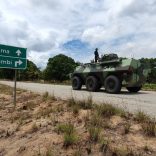Mozambique: Terrorist couple surrenders to authorities in Mocímboa da Praia - AIM report
Erik Prince’s security company in northern Mozambique: Plot or coincidence?

Are armed attacks in the north a coincidental jackpot for Erik Prince, or is tension just a well-designed plot to benefit individuals and corporations? Analysts answer this and other questions.
Northern Mozambique has been the scene of violent armed attacks recently, which in addition to killing members of the local population, are paralysing economic activities and could deter investment.
And the province of Cabo Delgado has one some of the largest gas reserves in the world, with many of the main oil companies operating in the region.
The theory of instrumentalisation of disorder
A joint venture between ProIndicus, one of the three companies involved in the notorious hidden debts scandal, and Erik Prince’s Lancaster 6 Group, is believed to be about to provide security for the region. One question is whether this cycle of violence been purposely orchestrated by individuals or corporations to take advantage of the country’s resources – or is this just another conspiracy theory?
“We cannot rule out a conspiracy because it is real and exists in other places, and there have already been cases like that,” says Professor Patrick Chabal , who talks about the instrumentalisation of disorder as a political instrument to achieve special economic purposes, economic, geopolitical purposes.

Houses burned by attackers in Mucojo, Macomia district
But he warned that “at this time, using the conspiracy theory alone, without much data, may sound intriguing, and create alarmism without any real basis. But anybody with their eyes open cannot simply ignore the conspiracy angle”.
Business opportunity or an opportunity for Erik Prince?
A military intelligence and security project called Pro6, SA and valued at about US$750 million, could be implemented over the next five years. But as Mozambique does not have the capital to finance it, Eric Prince has proposed to cover 80 percent of the value, through the L6G, and be repaid with dividends of the country’s natural resources.
In the meantime, the security manager, who already has interests in Proindicus, would set up the joint venture through his L6G company to take advantage of a business opportunity. Or is that he is being opportunistic?
“Mr. Prince is known as a security contractor on a world scale, and this is a dimension that he wants to take advantage of, but presumably not by creating a scare for the Mozambican state. But, above all, it is an indirect way into the hydrocarbon industry.”
Dizzy cycle of debt?
Financially, Mozambique is on the brink, mainly because of illegal debts valued at around EUR 1,800 million. The scandal has tarnished the country’s image abroad, virtually closing the doors to foreign investment.
The authorities continue to place hopes on natural resources, particularly gas, which will only begin to be produced in any quantity from 2023. However, Mozambique has invested little in the gas business, which means it will not enjoy sizeable returns, at least in the beginning.
Given this scenario, would Mozambique not be risking too much with such a security project?
Sergio Gomes, a specialist in international relations and doctoral student in foreign policy and energy diplomacy, answers cautiously.
“I would say it would be an unwise move by Mozambique as a state. From the perspective of Proindicus, a public-private entity, and the state assuming financial responsibility for a new project, compromising future profits would be an ill-advised move. ”
Are the FDS incompetent or incapable?

The attacks in Cabo Delgado began in October 2017 and, since then, the FDS (Mozambique’s Defence and Security Forces) have proved incapable of dominating the attackers or preventing further actions. If a private security company starts operations in the region, wouldn’t the FDS coincidentally be certified as incompetent?
“I would not say incompetent, I would say incapable. And incapacity is not unique to Mozambique – many states do not have capacity. In fact, there are many security operators in the gas and oil extracting sector. That would not be new to Mozambique,” analyst Sérgio Gomes says.
But he stresses: “What is at stake is the way this is done: whether the state wants to enter into partnership with a private service, or be left out, leaving a private service to operate alone.”
Who is Eric Prince?
Erik Prince’s Blackwater provided services to the United States government valued at about US$2 billion dollars during the war in Iraq, but was involved in the deaths of 18 people there.
After the scandal in Iraq, he disbanded Blackwater in 2010 and created Reflex Responses in the same field, and, soon after that, Frontier Services, which operates in different sectors, including logistics, air and security. It is through Frontier Services that Prince entered Mozambique in late 2017, to invest in the now-notorious hidden debt companies.













Leave a Reply
Be the First to Comment!
You must be logged in to post a comment.
You must be logged in to post a comment.